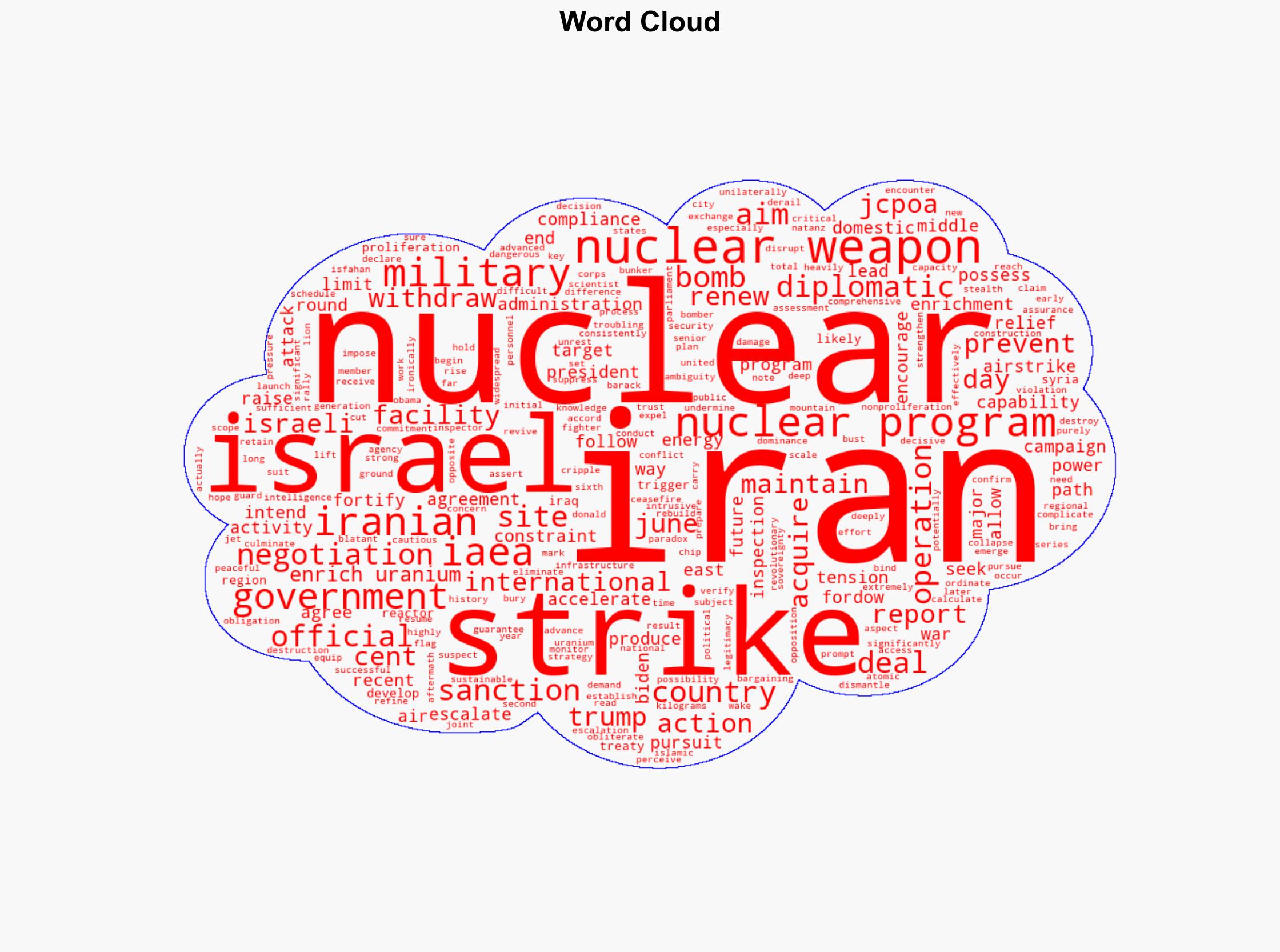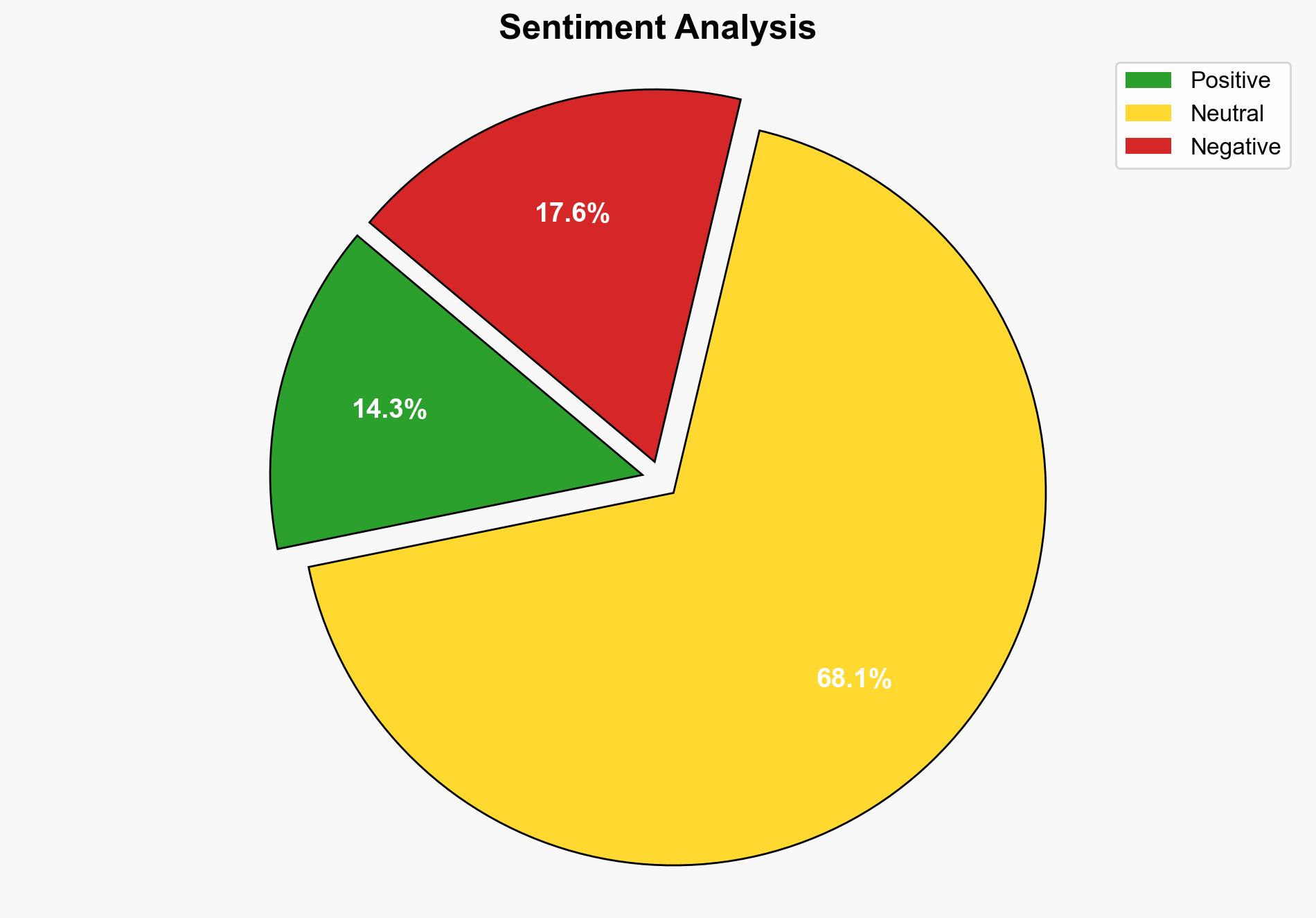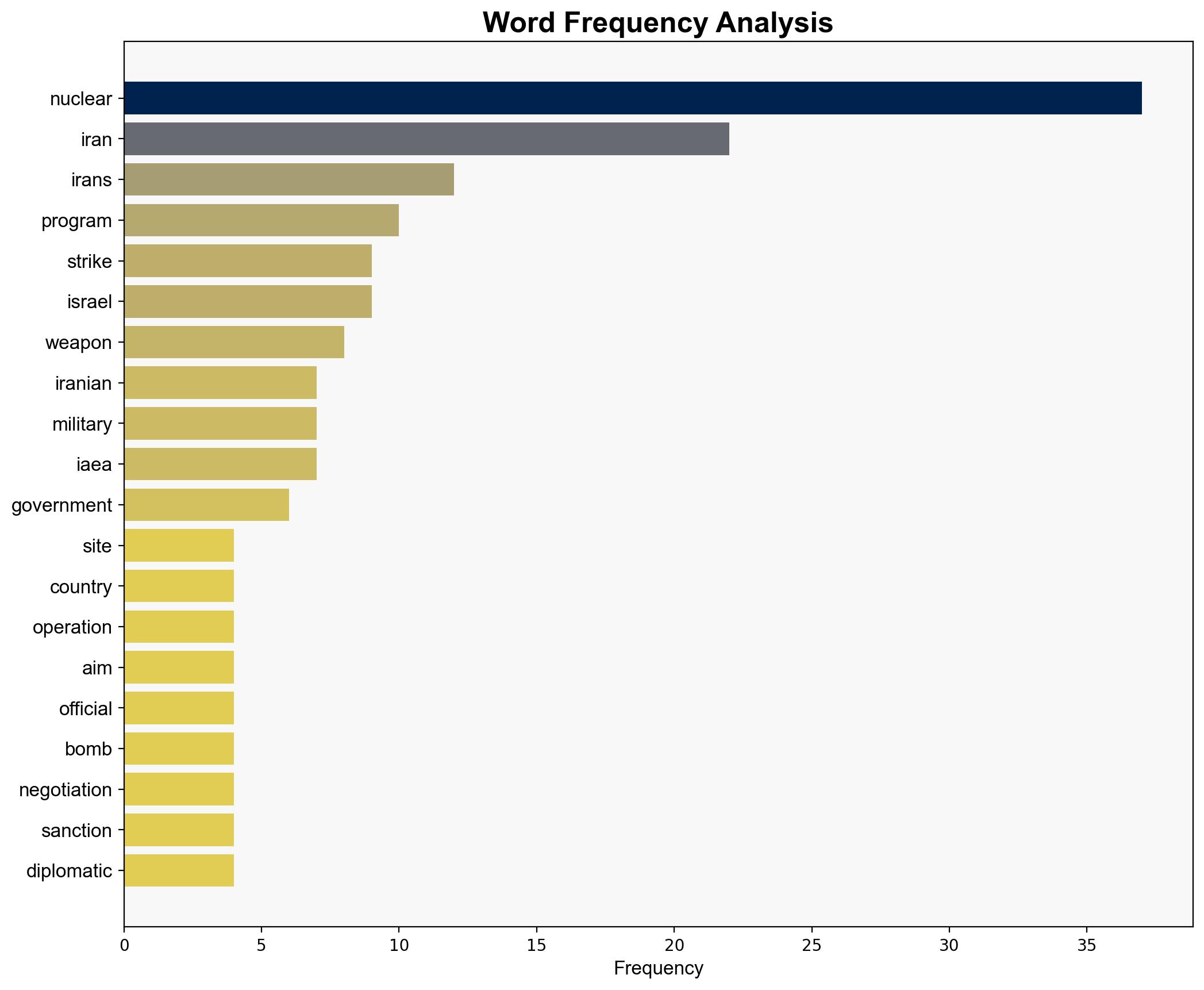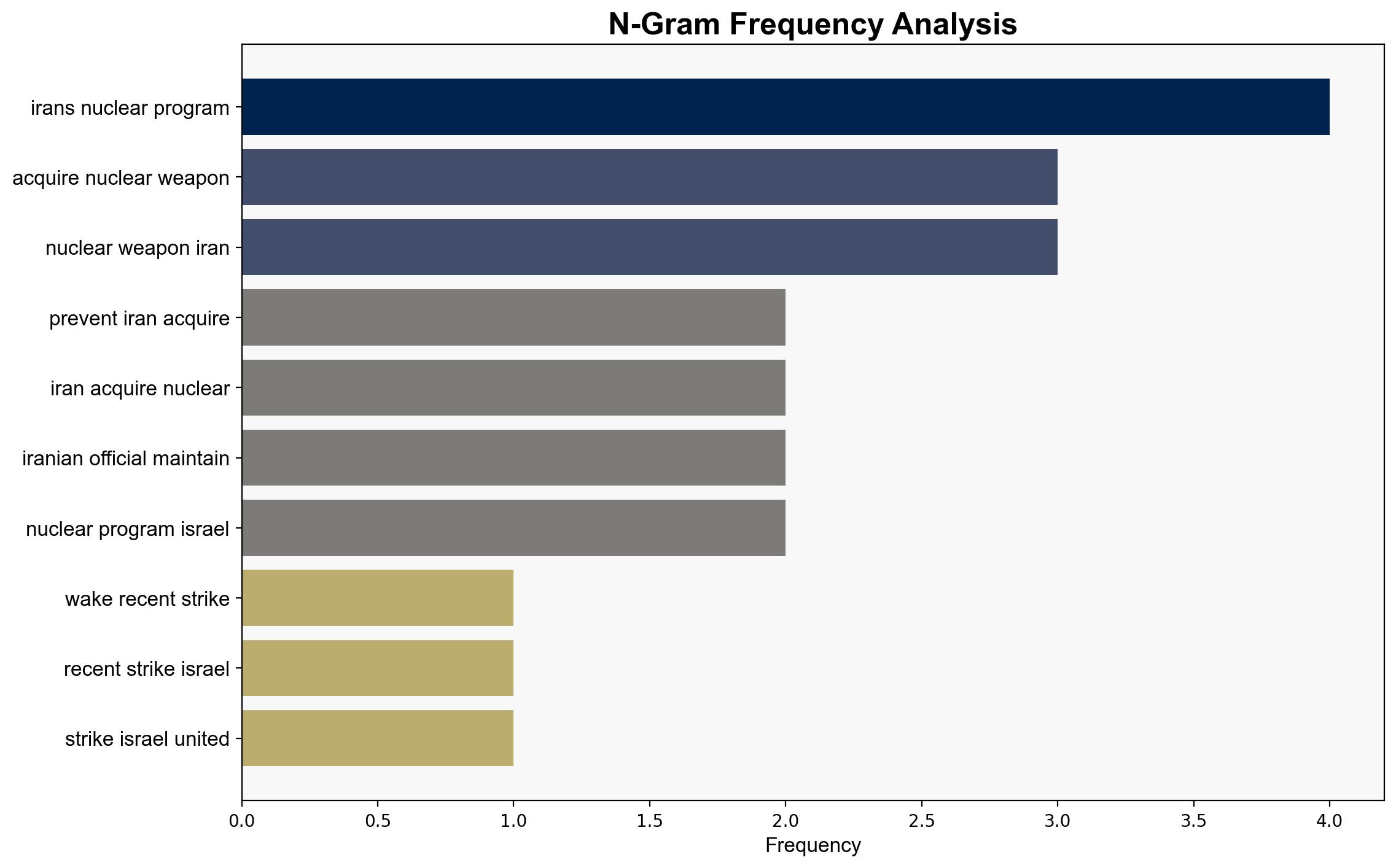US and Israeli strikes on Iran could fuel a new wave of nuclear proliferation – The Conversation Africa
Published on: 2025-07-14
Intelligence Report: US and Israeli strikes on Iran could fuel a new wave of nuclear proliferation – The Conversation Africa
1. BLUF (Bottom Line Up Front)
Recent military actions by the US and Israel targeting Iran’s nuclear facilities may paradoxically accelerate nuclear proliferation in the Middle East. While intended to prevent Iran from acquiring nuclear weapons, these strikes could prompt Iran to intensify its nuclear efforts and encourage other regional powers to pursue similar capabilities. Strategic recommendations include re-engaging in diplomatic negotiations and reinforcing non-proliferation frameworks to stabilize the region.
2. Detailed Analysis
The following structured analytic techniques have been applied to ensure methodological consistency:
Causal Layered Analysis (CLA)
– **Surface Events**: US and Israeli strikes on Iranian nuclear sites.
– **Systemic Structures**: Regional power dynamics, historical conflicts, and international sanctions.
– **Worldviews**: Perceptions of nuclear deterrence and security.
– **Myths**: The belief that military action can effectively prevent nuclear proliferation.
Cross-Impact Simulation
– Potential escalation of regional conflicts involving neighboring states.
– Economic impacts due to increased sanctions or military expenditures.
– Possible shifts in alliances and geopolitical alignments.
Scenario Generation
– **Best Case**: Diplomatic resolutions lead to a renewed nuclear agreement, reducing proliferation risks.
– **Worst Case**: Escalation into broader regional conflict, with multiple states pursuing nuclear capabilities.
– **Most Likely**: Continued tension with intermittent diplomatic efforts and sporadic military engagements.
3. Implications and Strategic Risks
The strikes risk destabilizing the Middle East, increasing the likelihood of nuclear proliferation. There is potential for retaliatory actions, cyber-attacks, and economic disruptions. The erosion of diplomatic trust could hinder future negotiations, while regional actors may seek nuclear capabilities as a deterrent.
4. Recommendations and Outlook
- Re-engage Iran in diplomatic talks to revive or renegotiate the JCPOA, ensuring stringent verification measures.
- Enhance regional security frameworks to prevent escalation and build confidence among Middle Eastern states.
- Monitor and address potential cyber threats as part of a comprehensive security strategy.
- Scenario-based projections suggest prioritizing diplomatic engagement to prevent worst-case outcomes.
5. Key Individuals and Entities
– Barack Obama
– Donald Trump
– Joe Biden
6. Thematic Tags
national security threats, nuclear proliferation, Middle East stability, diplomatic negotiations





